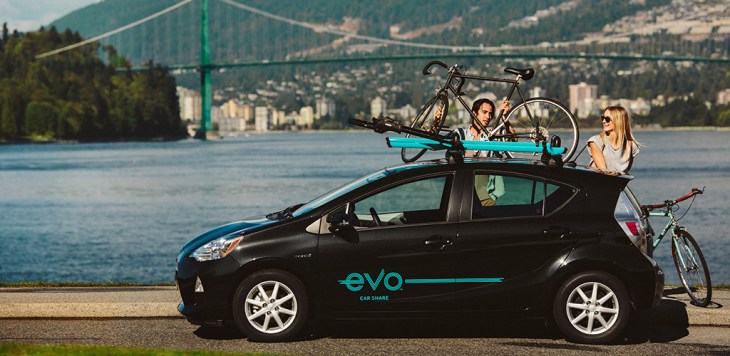Vulog is not a big name in the car sharing space, especially in the US, but the French company is hoping to change that at CES 2017. Alexandre Thibault, VP of business development, said it’s the only independent company that provides hardware and software solutions to car sharing services. (The better-known free-floating car sharing services, car2go and ReachNow, are owned by Daimler and BMW, respectively.) Vulog started R&D in 2005, before the iPhone’s debut, and its technology has been deployed in car sharing services for the past three years.
It’s partly been a deliberate decision to fly under the radar. Thibault said in an interview as we drove up the Strip in Las Vegas that many of Vulog’s partners want to brand their services with their own brands. Vulog provides the means to make car sharing happen — back-end fleet management software, in-car hardware, apps, or any mix that meets the clients’ needs — but the providers run the services.
The company has thousands of vehicles using its technology, mostly in Europe and Canada so far. Its most recent deployment was with the new Emov service in Madrid. It launched on December 15, 2016 with 500 electric Citroens in the fleet, and by early January 2017, there were already 40,000 users in the city.
Vulog works with organizations that want to share vehicles but aren’t themselves car makers. The city of Montreal has been working with Vulog for some time on its electric and hybrid car sharing service, Communauto, and Evo in Vancouver, BC, has a fleet of 1000 vehicles using Vulog’s technology. Thibault noted that real estate agents and energy companies are also candidates for a shared fleet using this system.
While Vulog can provide its technology and data security and then get out of the way of the providers, it does need organizations that are contemplating car sharing to know that Vulog exists. The mashup of automotive and technology companies at CES in recent years means companies like Vulog have a chance at finding a toehold in the US market here.
Correction: ReachNow is owned by BMW, but the car sharing platform used by the service is provided by RideCell, another independent company that works with OEMs on their Mobility as a Service projects.
